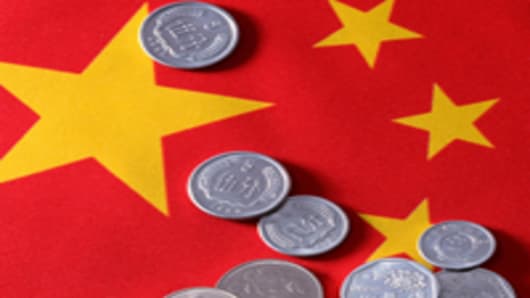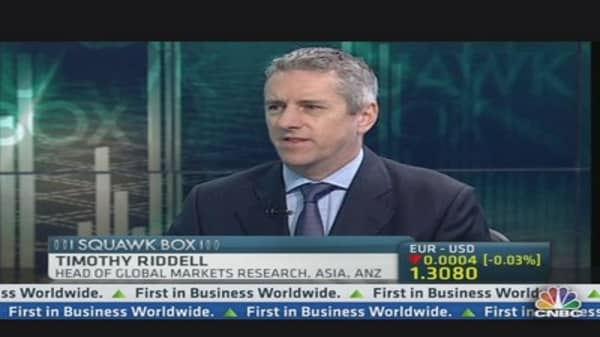China's central bank has said it is ready to help out local lenders suffering under tight credit conditions, but that doesn't mean the reprieve for banks will last long, analysts say.
The People's Bank of China (PBOC) said on Tuesday it would guide market rates to reasonable levels and expected seasonal factors that have contributed to a spike in interbank lending rates over the past two weeks to gradually ease.
Still, the central bank has made it clear that it wants local lenders to rein in the high credit growth that poses risks to financial stability. That means banks will continue to feel some pain even as credit conditions ease up over the short-term, China watchers said.
"The PBOC is taking away the punch bowl, Chinese style. The party has been on in the non-banking system and they don't want it to get out of control," Thomas Byrne, senior vice president at credit ratings agency Moody's Investors Service, told CNBC Asia's "The Call."
(Read More: China Is Right to Tame Credit Growth: Moody's)
Fears that China's credit squeeze will lead to slower economic growth and raise the risk of a crisis in the banking sector have roiled markets inside and outside China this week.
Assurances from the PBOC that it would offer funds to banks if needed helped most Asian stocks rebound on Wednesday. But China's equity market continued to fall with small and mid-sized lenders, seen as more dependent on short-term interbank funding than larger banks, hurt the most.
Ping An Bank for instance fell 2 percent, while China Minsheng tumbled 3.5 percent.
(Read More: Goldman Sees No Rebound for Chinese Stocks)
"Lots of Chinese banks are trading at a price-to-book ratio of less than one," said David Marshall, senior analyst, Asia-Pacific financials, at research firm CreditSights, referring to a ratio that compares a company's stock market value to its book value. "Clearly that indicates that there are worries about the future profitability of the Chinese banks."





